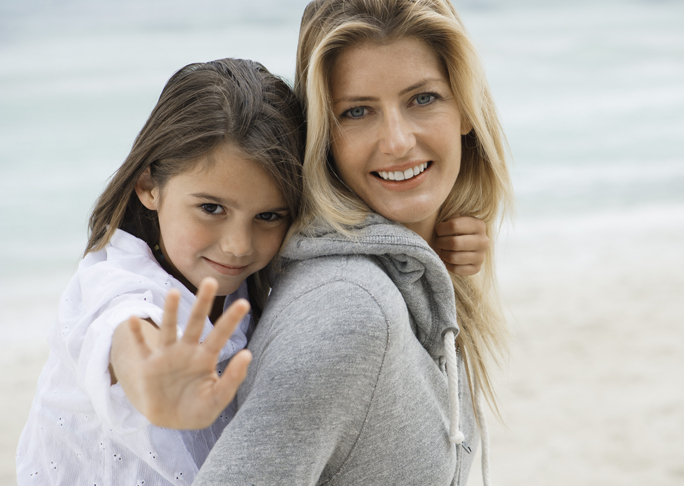Parenting is difficult. For so many reasons. And I was ready for that.
I was ready to be there for my children. I was ready to parent, mentor, guide and discipline them. I was ready to be their role model and their life coach.
I was ready to lay down the law for my children.
But I was not ready to lay down the law for those interacting with my children. And I’m finding this infinitely more difficult.
So this is a request to anyone and everyone who might come into contact with my children. Strangers, acquaintances, family, friends, everybody, ever – please don’t say these things to my kids.
“If you’re naughty, you’ll get smack!”
I’ve heard this said to my children a few times. And the weird thing is, when I call people on it, they claim to have been joking.
Forgive me, but I don’t understand the joke.
What’s funny about threatening a child with violence? If it’s a ‘joke’, how does that make it okay? How do you explain the punchline to a child? “Don’t worry, Uncle Fred was just joking about hurting you because you were a little noisy. Because it’s funny, see?” It just doesn’t fly.
We don’t smack our children. We don’t believe that it is possible to teach our children that it is never okay to hit someone if they’ve experienced us doing that very thing. We also don’t use empty threats. And anyone threatening to smack our children is making an empty threat (or they’d better be!).
Smacking and spanking references have been removed from Enid Blyton’s books. Please don’t use them with our kids.
“What’s the magic word?”
I’ve never particularly liked this phrase, but since becoming a parent, it sets my teeth on edge.
Please is not a magic word. It does not immediately reward my children with whatever it is they desire. Please is instead the minimum requirement for consideration of their request. The bare minimum.
I want my children to be polite. I want them to use the words please and thank you, and to speak to other people with respect.
So when they don’t, that’s what I ask for. I say, “How do you ask nicely?” Or perhaps, “How do you ask with respect?” or, “Did you forget your manners?”
And if we’re playing a witchy dress-up game, perhaps I’ll ask, “What’s the magic word?” But I’ll be expecting to hear ABRACADABRA! in response.
“That’s not very ladylike.”
If you’re saying this to or about my daughter, you’re probably right. Whatever my daughter is currently doing, it is probably not very ladylike.
But that’s because she’s not a lady. She’s a six-year-old girl who likes tumbling, flipping, dancing and playing. She’s a six-year-old girl who loves wearing dresses and skirts, and dislikes any restrictions that some might seek to impose on her simply because she loves wearing dresses and skirts.
And while I don’t own a crystal ball, I will say this: if she takes too strongly after me, there’s a good chance she’ll never be particularly ladylike. And she’ll be just fine.
“You need to eat / You’re so skinny / You’re getting chubby / Do you really need to eat that?”
Please, I beg of you, before you comment on a child’s physique, diet or weight, just do this one small, simple thing:
DON’T.
“It’s not that important.”
I get it. I really do. Sometimes, when my children are whinging over seemingly inconsequential things, I want to brush it off. “There are no clean pink cups? Then just choose another colour! It’s not that important! Come on!”
But I don’t. (Usually. I’m only human, after all.) Because right then, right there in the moment, whatever my child is upset about is a problem. It’s a big enough problem to take priority over everything else in their world.
They might not remember the problem tomorrow. They almost certainly won’t remember it in a week. But if I brush that problem aside now, that’s what they’ll remember. They’ll remember that last time they were upset about something, I didn’t care. They’ll remember that what is important to them isn’t always important to me.
And they’ll stop coming to me with the important stuff.
So please, don’t tell my child that whatever they’re upset about isn’t that important. Because it’s important to them.
What do you wish people would stop saying to your children?
How about these?
- Dear Mums: Stop Calling My Baby Girl Fat
- Dear Family: I Won’t Let Your Body Image Issues Damage My Daughter
- I Have No Problem Reprimanding Other People’s Kids
Image: Getty








